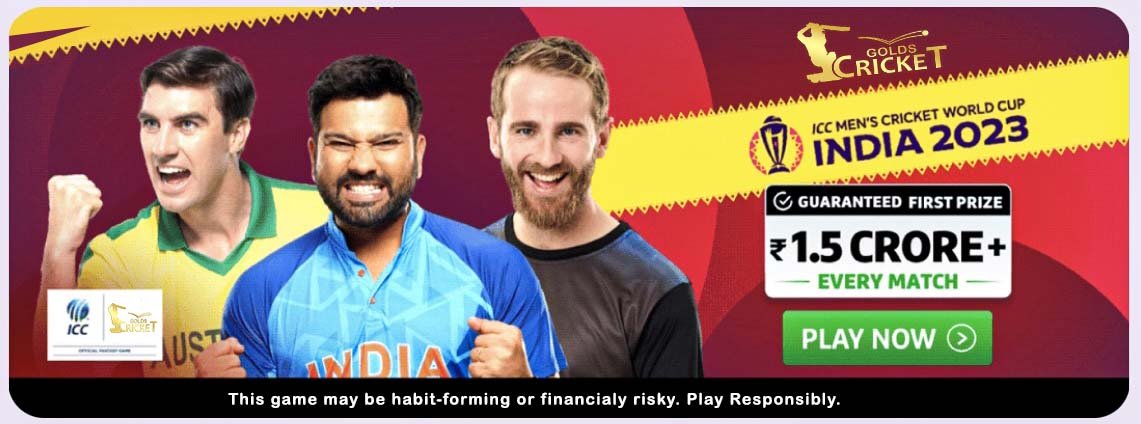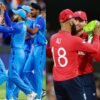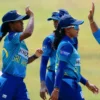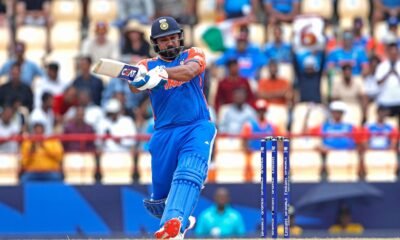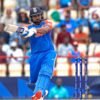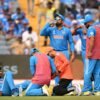Cricket
Breaking the pain barrier | Cricket
[ad_1]
“Just to do that is more than impressive…It is one of those epic tales of grit and determination.” Another quote on Glenn ‘201 not out’ Maxwell as he stood with a smile that spread all the way to the Australia dressing room on Tuesday night, right? Wrong.

The quotation is attributed to Dr Steve Shoemaker, an orthopaedic surgeon, in The San Diego Union-Tribune and refers to Tiger Woods winning the 2008 US Open after having used his clubs for support through the weekend. One month before he was doubling over in pain while trying to get up from a chair and doctors had told Woods he shouldn’t play. You normally wouldn’t if you have two stress fractures on your left leg. Definitely not without a knee brace. Woods did both and won his 14th major beating Rocco Mediate in the play-off. No wonder, the win, in his words, was “probably the best ever”.
Maxwell’s Houdini act came when he was cramping severely. His back was tight early in the innings, Australia skipper Pat Cummins said at the press conference after their three-wicket escape to victory against Afghanistan. He also had cramp in his hamstring and calves. He couldn’t move so he stood and delivered, showing superb wristwork and control. This was like Alvin Kallicharan’s 10-ball 35-run assault on Dennis Lillee in the 1975 World Cup spread across the Afghanistan attack and for much longer.
“He kept hitting them in the stands, we can’t put fielders in the stands<” said Afghanistan coach Jonathan Trott.
Maxwell collapsed after completing a run and needed so much attention from physios that Cummins thought next batter Adam Zampa would need to come out. “He literally couldn’t move,” said Cummins. But the medical staff convinced Maxwell that it would be worse if he came off. “So try and hang out there, stand up, and that’s probably your best bet,” said Cummins.
With greater awareness about head injuries, sport usually bars players from ignoring medical advice and continuing like Hugo Lloris did in November 2013. Lloris has said he was wrong to have wanted to play after being unconscious following a collision with Romelu Lukaku in the Premier League.
But on how a player manages to play through pain, there isn’t a scientific explanation. Attempts have been made though. In 2014, a study by the school of medical sciences at University of New South Wales found that pain threshold is higher in healthy individuals who do aerobic training. Prior experience of pain too can make players bear suffering better, another study found out. Both instances are from a 2019 article in ‘Global Sports Matters’.
But about this there is no debate: do a Maxwell and you earn the respect of everyone in the team. “This element of sport culture, dubbed “sport ethic”…emphasises sacrifice… in a heightened media environment that glorifies playing through pain,” says the Global Sports Matters article.
That could explain why Curt Schilling of the Boston Red Sox kept pitching in the sixth game of the 2004 American League Championship series despite blood soaking his socks from a tendon injury. The sock, according to bleacherreport.com, is in baseball’s Hall of Fame.
Or why Manchester City’s Bert Trautmann played on with a neck injury in the 1956 FA Cup final against Birmingham. “Knowing what was at stake, Trautmann played on for the final quarter of an hour, unaware that he was jeopardising his life in the process,” writes Colin Schindler in ‘Manchester United Ruined My Life.’ As per Schindler, Trautmann made “City supporters out of little boys all over Manchester that day”.
When Franz Beckenbauer put his body on the line for West Germany, he had supporters in Munich, Manchester and beyond. A brutal foul while, “in full spectacular flight towards the Italian goal”, in the words of Brian Glanville in ‘The Story Of The World Cup’, had led to a dislocated shoulder but Beckenbauer returned with an arm strapped to his side. West Germany wasted the free-kick awarded for the foul and lost the pulsating semi-final 3-4.
Doing it for the team was why Kerri Strugg ignored a twisted ankle to land a vault on one leg in the 1996 Olympics. The USA women’s gymnastics team needed at least 9.5 to win gold. Strugg had not only failed in her first attempt but also got injured. Yet, she scored 9.75 in her next attempt. Ditto Michael Jordan who, wracked by a severe bout of food poisoning and barely able to stand, scored 38 points to lead a comeback for Chicago Bulls in a game of the 1997 NBA finals.
It was why as India captain Anil Kumble bowled with a broken jaw in 2002 and dismissed Brian Lara. Or why Hanuma Vihari soldiered on despite a hamstring tear and, with Ravichandran Ashwin, saved a Test for India in Sydney in 2021. But if you asked them how they did it, they would possibly paraphrase Woods who, in 2008, had said: ‘I don’t know’.
[ad_2]


